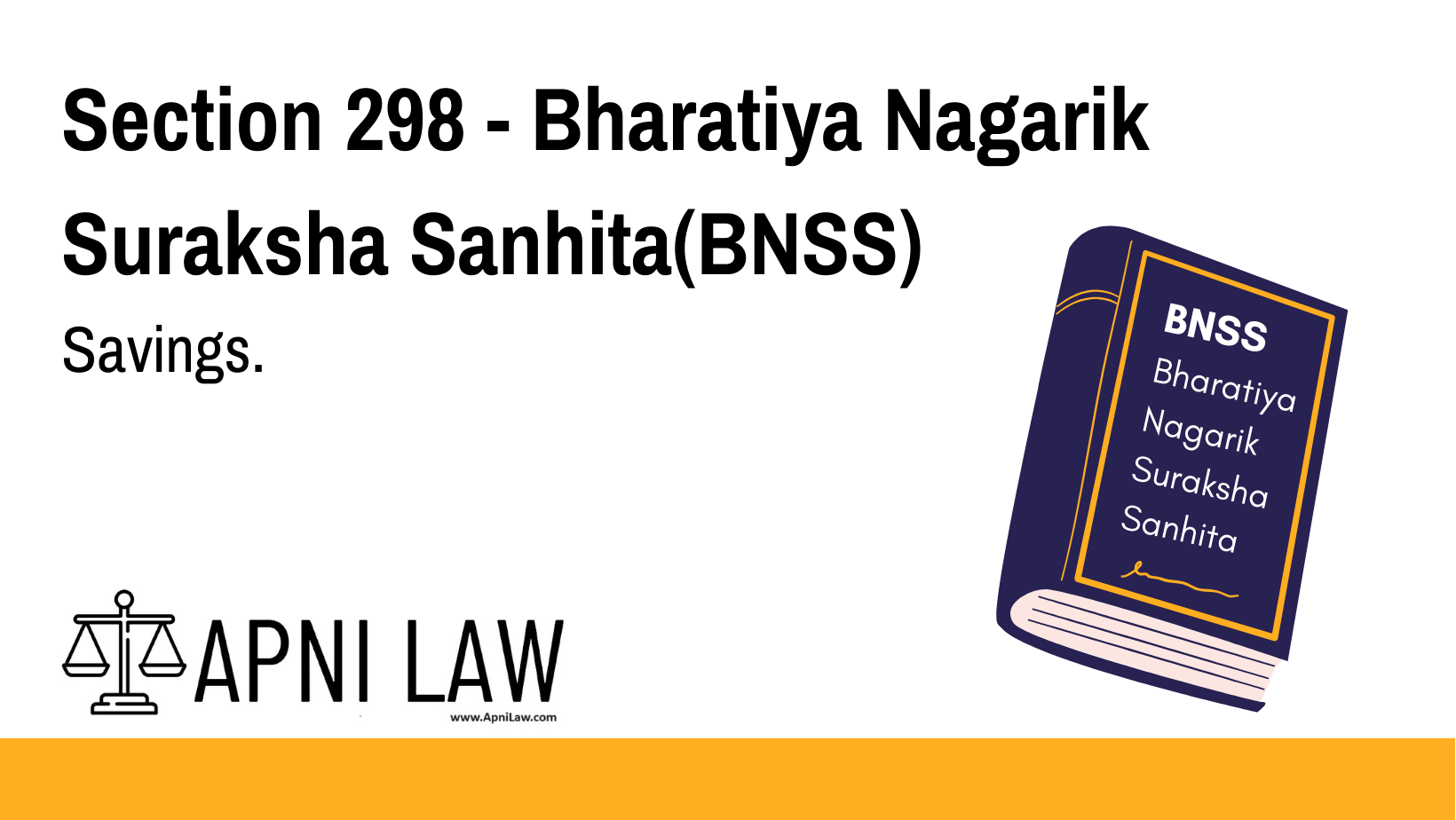Code: Section 298 BNSS
298.
any other provisions of this Sanhita and nothing in such other provisions shall be construed to constrain the meaning of any provision of this Chapter.
Explanation.—For the purposes of this Chapter, the expression “Public Prosecutor” has the meaning assigned to it under clause (v) of section 2 and includes an Assistant Public Prosecutor appointed under section 19.
Explanation of Section 298 BNSS
Section 298 of the BNSS establishes that the provisions within the specific Chapter it belongs to will have overriding authority. In case of any inconsistency with other provisions of the Sanhita, the provisions of this Chapter will prevail, ensuring they are not limited or constrained by other laws within the same Sanhita. Additionally, the explanation clarifies the definition of “Public Prosecutor” as per Section 2, which includes both the main Public Prosecutor and any Assistant Public Prosecutors appointed under Section 19.
Illustration
Example 1: Overriding Effect
In a scenario where the provisions of Chapter XX contradict provisions of another Chapter, the rules laid down in this Chapter will still apply, overriding the conflicting provisions. For instance, if there’s a procedural conflict, the Chapter in question would take precedence.
Example 2: Definition of Public Prosecutor
When the term “Public Prosecutor” is used in this Chapter, it refers to the individual as defined under Section 2 of the BNSS and includes Assistant Public Prosecutors appointed under Section 19.
Common Questions and Answers on Section 298 BNSS
1. What is the significance of the overriding effect in Section 298?
- Answer: Section 298 ensures that the provisions of the Chapter are not limited or overridden by any conflicting provisions in other parts of the Sanhita, guaranteeing the intended application of the Chapter.
2. What does “Public Prosecutor” include under Section 298?
- Answer: The term “Public Prosecutor” includes both the primary Public Prosecutor as defined under Section 2 and any Assistant Public Prosecutors appointed under Section 19.
Conclusion
Section 298 of the BNSS ensures the supremacy of the provisions within its specific Chapter over any conflicting provisions in the rest of the Sanhita, thereby reinforcing its application. It also provides clarity on the scope of the term “Public Prosecutor,” which includes both the main and Assistant Public Prosecutors as defined in Section 2 and Section 19.








